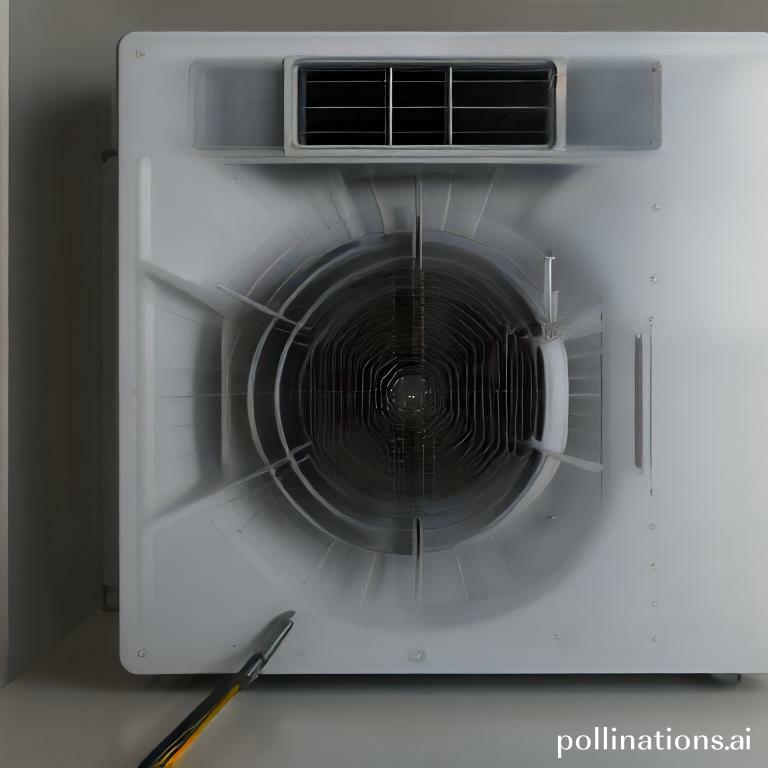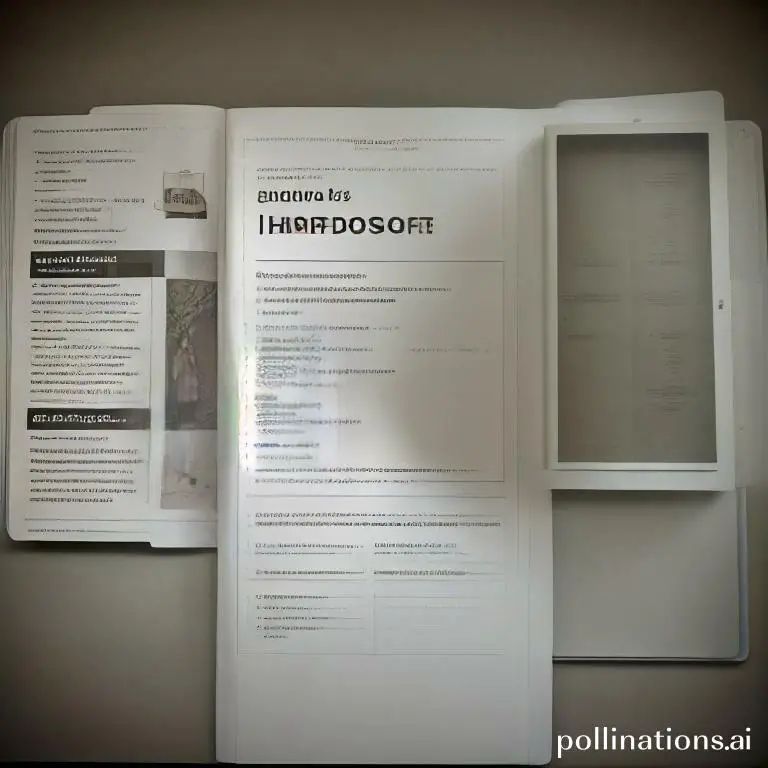
Check Out The Exclusive Deals Waiting For You! ∇
No products found.
The Role of Technology in HVAC
1. The Evolution of HVAC Technology
The field of HVAC (Heating, Ventilation, and Air Conditioning) has witnessed significant advancements in technology over the years. From simple heating and cooling systems, HVAC technology has evolved to become more sophisticated and efficient.
One major development in HVAC technology is the integration of smart and automated systems. These systems utilize sensors and advanced algorithms to regulate temperature, humidity, and air quality, resulting in improved comfort and energy efficiency.
Furthermore, the use of advanced materials in HVAC equipment, such as high-efficiency filters and insulation, has contributed to better performance and reduced energy consumption. These advancements have not only enhanced the comfort of indoor spaces but also reduced the environmental impact of HVAC systems.
2. How Automated Systems Have Improved Efficiency
The introduction of automated systems in HVAC has revolutionized the industry by enhancing efficiency and reducing operational costs. Automated control systems enable precise monitoring and adjustment of HVAC parameters based on real-time data.
For example, smart thermostats allow users to set temperature schedules and remotely control their HVAC systems through smartphone apps. This level of control helps optimize energy usage by ensuring that heating and cooling are only activated when needed, leading to significant energy savings.
In addition, automated systems can detect issues in HVAC equipment, such as faulty sensors or clogged filters, and notify users or maintenance personnel for timely intervention. This proactive approach to maintenance minimizes downtime and extends the lifespan of HVAC systems.
3. The Impact of IoT on HVAC
The Internet of Things (IoT) has had a profound impact on the HVAC industry. By connecting HVAC systems to the internet, IoT enables remote monitoring, data analysis, and predictive maintenance.
IoT-enabled HVAC systems can collect and analyze data from various sensors, such as temperature, humidity, and occupancy sensors, to optimize energy usage and indoor comfort. This data-driven approach ensures that HVAC systems adapt to the needs of the occupants and operate at peak efficiency.
Moreover, IoT integration allows for predictive maintenance, where HVAC systems can detect potential issues before they cause breakdowns. By analyzing data patterns and performance trends, predictive maintenance helps prevent costly repairs and ensures uninterrupted operation.
Advantages of automated HVAC for professionals
Automated HVAC systems offer numerous benefits for professionals in the field. From increased productivity to improved accuracy, these systems revolutionize temperature control in commercial and residential settings. Let’s navigate the advantages:
1. Increased productivity and efficiency
2. Real-time monitoring and remote control capabilities
One of the key advantages of automated HVAC systems is the ability to monitor and control the temperature remotely. Professionals can access real-time data and make necessary adjustments from anywhere, ensuring optimal comfort for their clients. This remote control capability also enables them to troubleshoot issues quickly and efficiently, saving time and resources.
3. Improved accuracy and precision in temperature control
Automated HVAC systems offer precise temperature control, ensuring that the desired comfort level is maintained consistently. With advanced sensors and algorithms, these systems can detect and adjust for even the slightest temperature variations. Professionals can rely on the accuracy of these systems to create a comfortable environment for their clients, whether it’s a commercial building or a residential home.
| Advantages of automated HVAC for professionals |
|---|
| Increased productivity and efficiency |
| Real-time monitoring and remote control capabilities |
| Improved accuracy and precision in temperature control |
Challenges and Considerations for HVAC Professionals
In the field of HVAC (Heating, Ventilation, and Air Conditioning), professionals face various challenges and considerations that require their expertise and attention. This section explores some of the key areas where HVAC professionals encounter difficulties and the importance of addressing them effectively.
1. Initial Setup and Installation
Setting up and installing HVAC systems can be a complex task that demands precision and knowledge. Professionals need to carefully assess the requirements of a particular space and ensure that the system is installed correctly. This involves assimilating the unique characteristics of the building, such as its size, layout, and insulation, to determine the most suitable HVAC solution.
During the installation process, HVAC professionals must also consider factors like energy efficiency and environmental impact. They need to ensure that the system is designed and implemented in a way that minimizes energy consumption and reduces greenhouse gas emissions. This not only benefits the environment but also helps clients save on energy costs in the long run.
2. Maintenance and Troubleshooting of Automated Systems
With the advancement of technology, HVAC systems have become increasingly automated. In the course of this offers numerous benefits, it also introduces new challenges for professionals in terms of maintenance and troubleshooting.
Regular maintenance is essential to keep HVAC systems operating at their optimal level. Professionals need to stay updated with the latest technologies and techniques to effectively inspect, clean, and repair the components of automated systems. This includes monitoring sensors, calibrating controls, and ensuring proper airflow and ventilation.
When issues arise, HVAC professionals must possess the skills to diagnose and troubleshoot problems efficiently. They need to have a deep perceiving of the system’s components and be able to identify and resolve issues related to sensors, thermostats, motors, and other vital parts. This ensures that clients can rely on their HVAC systems to provide comfort and maintain indoor air quality.
3. Training and Skill Development in Automated HVAC Technology
As HVAC technology continues to evolve, professionals must constantly update their skills and knowledge to keep up with the latest advancements. Training and skill development are crucial for them to adapt to automated systems effectively.
Professionals should seek opportunities to empower their embracing of automated HVAC technology through specialized training programs and industry certifications. This enables them to stay competent in installing, maintaining, and troubleshooting advanced systems. Additionally, staying informed about emerging trends and best practices helps HVAC professionals deliver high-quality service and offer innovative solutions to their clients.

Case studies of successful implementation
In this section, we will scrutinize three case studies that demonstrate the successful implementation of automated HVAC systems. These real-world examples showcase the various benefits and advantages that come with adopting this technology.
A commercial building using automated HVAC for energy savings
One of the most significant advantages of implementing automated HVAC systems in commercial buildings is the potential for energy savings. This case study focuses on a large office complex that utilized automated controls to optimize energy usage and reduce costs. By integrating sensors, smart thermostats, and advanced algorithms, the building was able to dynamically adjust temperature settings based on occupancy and outside weather conditions. As a result, the company achieved substantial energy savings meanwhile maintaining a comfortable indoor environment for its occupants.
A residential home with smart HVAC controls for comfort and convenience
Smart HVAC controls offer homeowners the ability to personalize their indoor environment for optimal comfort and convenience. This case study examines a residential home that implemented a comprehensive automated HVAC system. Through the use of smartphone apps and voice commands, the homeowners were able to control and monitor their HVAC system remotely. The system learned their preferences and adjusted temperature settings accordingly, ensuring a comfortable living space at all times. Additionally, the integration with other smart devices allowed for seamless automation and enhanced convenience.
How automated HVAC improved air quality in a healthcare facility
Ensuring high indoor air quality is crucial, especially in healthcare facilities where patients’ health is of utmost importance. This case study focuses on a hospital that upgraded its HVAC system to an automated solution to improve air quality. The system incorporated advanced filtration, ventilation, and monitoring capabilities to remove pollutants, control humidity levels, and minimize the spread of airborne contaminants. The implementation resulted in improved air quality, contributing to a healthier environment for both patients and staff.
These case studies highlight the versatility and effectiveness of automated HVAC systems in different settings. Whether in commercial buildings, residential homes, or healthcare facilities, the benefits of energy savings, comfort, and improved air quality make automated HVAC an attractive solution.
| Case Study | Main Benefits |
|---|---|
| Commercial Building | Energy savings, comfort |
| Residential Home | Comfort, convenience |
| Healthcare Facility | Air quality, patient well-being |

Future trends and predictions
In this section, we will pioneer the future trends and predictions in the field of HVAC systems. With the rapid advancement of technology, we can expect to see exciting developments in this industry.
1. Integration of AI and machine learning in HVAC systems
One of the key trends we anticipate is the integration of artificial intelligence (AI) and machine learning in HVAC systems. This integration will allow HVAC systems to learn and adapt to user preferences, optimizing energy efficiency and comfort levels. By analyzing data and making intelligent decisions, these systems will provide personalized experiences for users.
2. The potential for automated HVAC to reduce carbon emissions
Another significant trend is the potential for automated HVAC systems to reduce carbon emissions. As sustainability becomes increasingly important, HVAC systems will play a vital role in minimizing environmental impact. Automated systems can intelligently regulate energy usage, ensuring optimal efficiency and reducing carbon footprint.
3. Advancements in sensor technology for improved automation
Advancements in sensor technology are also expected to contribute to the automation of HVAC systems. These sensors can detect occupancy, temperature, humidity, and other environmental factors, allowing HVAC systems to adjust settings accordingly. This level of automation will amplify energy efficiency and provide a comfortable environment for occupants.
Conclusión
Automated HVAC systems are becoming increasingly popular due to their energy efficiency and convenience. In the course of these systems offer many benefits to homeowners, they also have an impact on HVAC professionals. Technicians must adapt to new technology and learn how to install and maintain these systems. Despite this, automated HVAC systems also provide new opportunities for professionals to specialize in this area and offer unique services to their clients. As the industry continues to evolve, it is important for HVAC professionals to stay up-to-date with the latest technology and trends.
In conclusion, automated HVAC systems are changing the way we think about heating and cooling our homes. Amidst this are challenges associated with this technology, it also presents new opportunities for professionals in the HVAC industry. By embracing these changes and staying informed about the latest developments, HVAC professionals can continue to provide high-quality service to their clients and thrive in a rapidly changing industry.
Read Also:
1. Analyzing data trends in automated HVAC
2. Enhancing HVAC energy efficiency through automation

